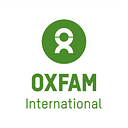How to Prevent Another Famine in the Horn of Africa
Abdiaziz Adani, Media and Communications Officer, Oxfam in Somalia, writes about learning the lessons of drought in the Horn of Africa. With more than 15 million people needing humanitarian aid across Ethiopia, Kenya, and Somalia due to prolonged drought, this is a critical read.
More than 15 million people are in need of aid as drought plagues parts of Ethiopia, Kenya and Somalia again. Yet lessons from the devastating droughts of 2011 and 2017 are being ignored, putting lives at risk. We can change this.
As drought intensifies again in 2019, Oxfam believes the commitment evident in the timely, large-scale response in 2017 is giving way to complacency. This complacency comes at a time when communities are particularly vulnerable.
“We can only survive from what we grow.”
In Somaliland we met Jama, a pastoralist and father of 11 children, and community volunteer in Oog village, Somaliland.
Jama told us: “We lost all our livestock, everything. We have no other livelihoods here — we can only survive from what we grow and livestock. We are entirely dependent on livestock and don’t have alternatives.
“I don’t even have words to describe the impact. Thank Allah we didn’t lose people. Losing all our livestock devastated the community.”
“We survive by support from government, NGOs and relatives if they can support. We are very dependent, and there’s nothing we can do. Even if NGOs or government help, next year it will all happen again… Nobody is providing enough support. Small-scale support isn’t enough,” laments Jama, who struggles to see a bright future.
“I’m pessimistic because if the current situation continues and drought reappears, it will just get worse. If there are no solutions and the situation doesn’t improve, we will lose everyone here. I’m afraid of losing people.”
Local and national authorities, aid agencies and the donor community may be tiring of this seemingly never-ending humanitarian need, but this is the reality.
Recovery from the 2017 drought is a constant struggle, leaving millions of people even more vulnerable to the 2019 drought. The international community sat on their hands in 2011 and famine was the result.
There’s still time for 2019 to be different
The international community can make a difference, if they act now.
Despite increasing needs, the humanitarian response is woefully underfunded — currently just over a third (35%) of the funds to help all those in need have been provided.
A further $1.5 billion is required to provide lifesaving assistance to the most affected people in Ethiopia and Somalia.
Lessons learned from the 2011 famine, which killed over 260,000 people, helped avert a famine in 2017 with large scale, swift funding ensuring an effective humanitarian response. We must do the same again to prevent the crisis deteriorating further.
Oxfam is there
We can mount an effective response to the drought, and also put in place better ways to comprehensively address underlying vulnerability in the Horn, where it’s the people with the least resources, influence in decisions and access to services who are suffering the most.
Oxfam and our local partners are currently helping hundreds of thousands of people with life-saving support in Ethiopia, Kenya and Somalia by providing clean water and cash to buy essential things, matched with longer-term support to build stronger, more resilient communities.
We are also providing support in the form of a locally-led platform for change called Nexus, involving Adeso, CPD, GREDO, HAVOYOCO, KAALO, SADO, SSWC, TASCO and WASDA.
We have worked with these partners for many years and have played a central role in supporting their development to becoming leading humanitarian responders. Their specialties include WASH, food security, youth, environment, protection, women’s empowerment, working across both humanitarian response and longer-term development projects.
This entry posted 1 August 2019, by Abdiaziz Adani, Media and Communications Officer, Oxfam in Somalia.
Read Oxfam’s report: Committed or complacent: A failing response to the 2019 Horn of Africa drought crisis
Read more about Oxfam’s life saving work in the Horn of Africa.
